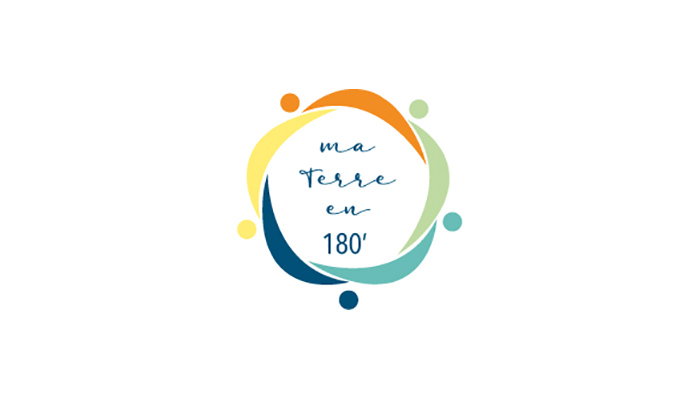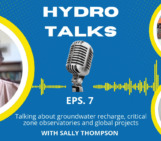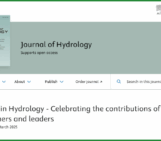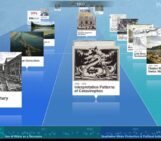
As with all professional activities, one of the greatest challenges for us, geoscientists, is how to reduce our own CO2 emissions linked to our research activities over the coming decades. A collective of 57 researchers came together in 2021-2022 to promote awareness and concrete action to decarbonize scientific activities: it was the birth of Ma Terre en 180 Minutes, whose title is inspired by Ma thèse en 180s (My thesis in 180 s, a PhD presentation competition format). The basic concept of this workshop is to put researchers in a virtual situation to discuss and find alternatives for reducing the emissions associated with a virtual research team of 10 people. This simulation is based on real greenhouse gas balances and is carried out on an online platform.
This collaborative workshop, which mobilized over a thousand people from the academic world since the first event in November 2020, has helped to sketch out the principles of an alternative practice for research that is sober, equitable, inclusive and more respectful of planetary limits and people.
Raising national and international awareness
Decarbonization is one of the major transformations that modern human societies must make to ensure a sustainable and desirable future. The United Nations’ Agenda 2030 for Sustainable Development stresses the need to accelerate decarbonization in all sectors of our economy (Objectif 13 of the UN Sustainable Development Goals). Within the French academic world, it seems that a small revolution is underway, against a backdrop of successive health, energy and climate crises that are shaking the dogma of the extractivist socio-economic model day by day as visible in the creation of the Think Tank Team CollectifLabos1point5.
Successively, the Special Report Global Warming of 1.5 ºC by the Intergovernmental Panel on Climate Change (IPCC) in 2018, the Jouzel report in 2022 (on providing training on the challenges of the ecological transition and sustainable development in higher education) and the adoption of Climate-Biodiversity and Ecological Transition plan led to general mobilization in France in 2022, and the Minister of Higher Education and Research (ESR) then invited all their staff to experiment with and embody the low-carbon transition and the reduction of their environmental impact in the practice of their professions. While the ministerial call is commendable, the task is far from easy for the organizations and their management, as the logic of performance and international recognition predominate, even though a large proportion of researchers, lecturers, administrative and technical staff and PhD students are questioning the model and calling it into question (December 2020 survey by the Labos1point5 collective and scientist’s tribune in Le Monde, March 2019).

Ideation workshop for the Ma Terre en 180 Minutes workshop in January 2023, bringing together the majority of people contributing to the project.
How do we move from observation to action ?
Designed by and for the academic world, the Ma Terre en 180 Minutes workshop immerses six to ten participants in virtual carbon research teams and invites them to create a sober practice in line with the Paris Agreement, which e.g. for France calls for a 40% of global emissions by 2030 compared with 1990 (French Energy-Climate Law, November 2020, and the European Fit for 55 roadmap, June 2022). The workshop is based on the premise of an equitably distributed and agreed effort, in other words, a climate transition that is inseparable from a form of social justice.

Ma Terre en 180 Minutes workshop at IGE (Grenoble – France) in June 2022.
Deployed in face-to-face, remote and mixed sessions, the Ma Terre en 180 Minutes workshops brought together a thousand participants from over 50 cities and 9 countries. The data collected during the first 85 workshops were analyzed and published in the journal PLOS Sustainability and Transformation (Gratiot et al., 2023). They reveal the significant weight of long-haul flights in the greenhouse gas (GHG) balance of research activities (excluding purchases of equipement). The results also show that a mix of simple alternative solutions to long-haul flights, equitably distributed between researchers of different career stages and between local and foreign partners enables emissions to be reduced in line with objectives (46% median reduction, excluding purchases): The alternatives offering the greatest reduction in emissions are the use of video communication tools (36%), followed by the pooling of professional activities and voluntary cancellation or reduction of those activities, which account for 22% and 14% of proposed reductions respectively. Should researchers slow down to find out where to land, as the French philosopher Bruno Latour used to frame it (see this tribute after his death in Le Monde) ?
This may well be the case, at least according to a recent survey published in Nature (“Fed up and burnt out: ‘quiet quitting’ hits academia”), according to which almost two-thirds of those surveyed in the research community have voluntarily reduced their attendance at (face-to-face) conferences in the wake of the COVID crisis. In our study, reducing the number of conferences with high GHG emissions was also the most popular alternative.
Used for almost 40 years as a response to climate change, serious games stimulate our cognitive reflexes, modify our perception of climate issues and question our individual and collective behavior, by combining education and fun. This unique study has shown that scientific research can significantly reduce emissions. However, the approach will only be effective if the avenues sketched out by the staff feed into the strategies of the institutes and enable the implementation of bold, fair and acceptable reduction actions since they are supported by both the staff they administer and the ministries to which they report. This is the approach taken by several French research organizations (CNRS and IRD), by adapting the workshop to schools, local authorities and businesses, offering a unique turnkey and inclusive method for moving from awareness to action. The aim is to promote responsible science that proposes solutions with and for society.
This post is based on a text published here (https://www.ige-grenoble.fr/Le-monde-academique-en-chemin-vers-la-sobriete) by Ma Terre en 180 Minutes group, reworked by Nicolas Champollion and translated and edited by Bettina Schaefli.




